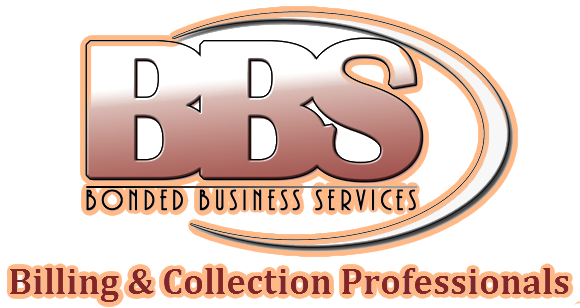People love their pets. When their pets get sick, they will pull out all the stops to get their furry best friend back on their feet and feeling well again. But when the bill for those treatments is due, a lot of patients end up not paying. Unfortunately, when those large bills aren’t paid, it can become more difficult for a veterinarian to keep their business running smoothly. The cash flow dries up and suddenly the vet is facing huge bills with no income in sight. That’s when a lot of them turn to our collections agency in Colorado for help. Our team specializes in veterinary debt recovery, taking this complicated task off of your to-do list. That way vets can focus on their patients while we focus on bringing in the money.
But one of the best ways to lower the bad debt in your clinic is to prevent it from happening in the first place. It’s easier said than done, but it’s far from impossible. Here are some tips that your veterinary clinic can put into practice to help prevent debt from going bad.
Help Prevent Bad Debt in Your Veterinary Practice
 Make up-front payments mandatory for treatment.
Make up-front payments mandatory for treatment.
It can be a tough policy to enforce, especially in an emergency, but by taking payments upfront for the treatment you’ll avoid any unpaid bills. It can also give your clients peace of mind knowing exactly how much the treatment is going to cost and avoid any unexpected surprises at the end of the visit (costs that are higher than anticipated are far more likely to go unpaid). In some situations, such as some emergencies and surgical procedures, it’s impossible to take payment upfront simply because circumstances could change during the course of treatment and require other medical interventions for which you’ll need additional payment. In these cases, taking a deposit on the procedure will ensure you get at least the bulk of the payment before you start.
Provide clients with an itemized estimate of costs.
When your clients understand why you are charging them that amount, they are much more likely to pay the bill. If they feel you are being greedy or overcharging them for your services, they are more likely to walk away without making their payment. Providing them with an itemized bill or estimate of the costs will help them see how the bill adds up. Breakdown the procedure, medication, and additional items like overnight stays and bandages so they see exactly what they are paying for. If they have pet insurance that covers part of the cost, be sure to include the coverage on their estimate or bill so they can see it in writing.
Only offer universal deals.
If you offer a deal to one person, it needs to become official policy and be offered to everyone. That’s because when you offer sweetheart deals to one client, the word can get out about this great deal they got and make your other clients resentful. They may assume they aren’t getting your best rate and decide to pay you back by not paying you at all. If you offer a discount for cash payments, make sure all of your clients know that’s the case so they can take advantage of it.
Build a solid relationship with clients.
It’s a lot harder to skip out on a payment when you like the person or have a personal relationship with them. That’s why you should take time to get to know your clients and develop a good professional relationship with them. That way when it’s time to pay their bill, they’ll feel uncomfortable walking away from it because they understand that you’ve worked hard to care for their pet and provided a level of care they won’t find anywhere else. When a client feels that you are doing all that you can for their pet, they are much more likely to (happily!) pay their bill.
Keep client information updated.
You can’t track down a payment from a client who you can’t contact. Make it a policy in your office to update your client’s information at the beginning of every visit. Ask them their phone number and address and make sure that the answers they gave match what you have on record. That way when you do need to call them or send them a letter asking for payment, you can be assured that they are at least getting it (even if they might be ignoring it).
What Happens When You Can’t Avoid Bad Debt
Despite all of your good intentions and efforts, it’s almost certain that you are going to accrue some bad debt in your veterinary practice over time. It’s one of the side effects of working with the public and asking for money for your services, unfortunately. When it happens, you need to handle the situation correctly. There are a number of laws in place to protect your clients from bad debt collection practices, and if you attempt to do the job yourself, you could land in some legal trouble. So when you do have bad debt within the practice, here is what you need to do:
- Document everything. Make sure you have a record of every charge, every payment, and every attempt to contact the client. This will help the collection agency understand the history of the case and how to move forward as well as help you later on in court (if it comes to that).
- Work with an experienced collections agency. Not all agencies are suited to working with veterinary clinics; this is a specialized field that’s going to require a soft touch when working with your clients. Find an agency who has experience collecting for a vet and understands what it takes to get the job done.
- Be prepared to write off some debt. It’s unlikely that 100% of your bad debt is going to be recovered. You will probably need to write off a portion of it. Be prepared for that and make sure you have safeguards in place to protect your cash flow.
Bad debt isn’t fun to deal with and you didn’t become a veterinarian so you could spend your time tracking down the money you are owed. Turn the job over to the experienced team at ACSI. We specialize in debt collection for veterinarians and understand what needs to be done to get the money you are owed. Learn more about how we can help you by giving us a call or contacting us through our website today. We’ll set up a consultation with a member of our team so you can learn more!



